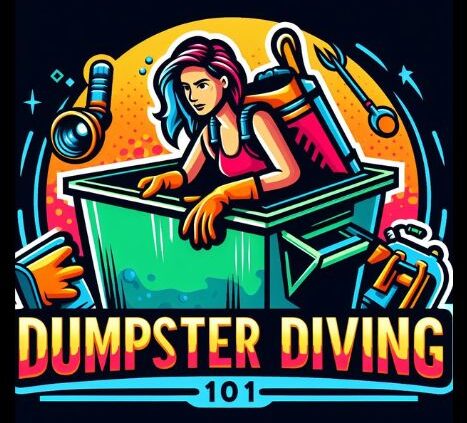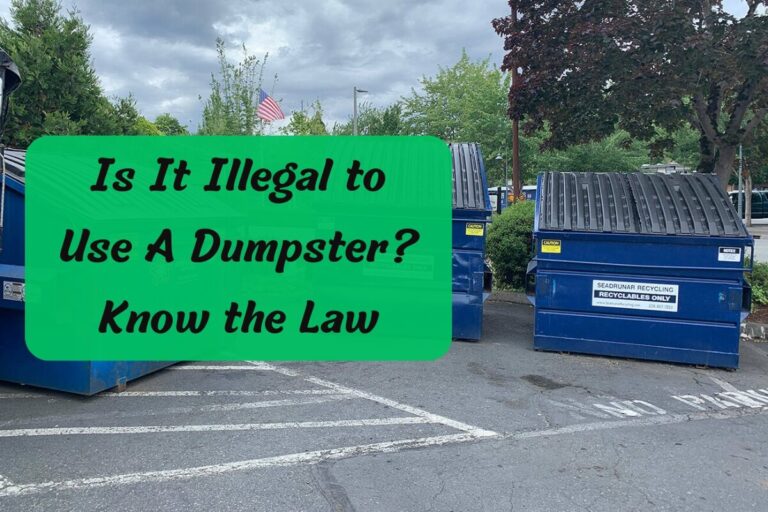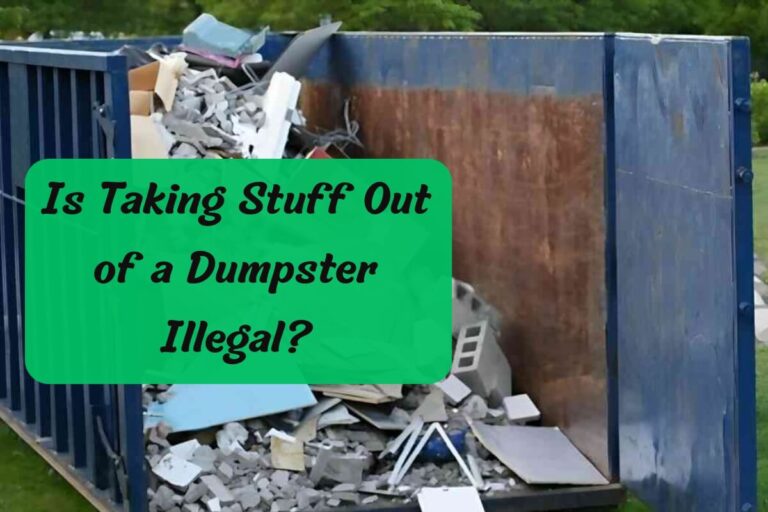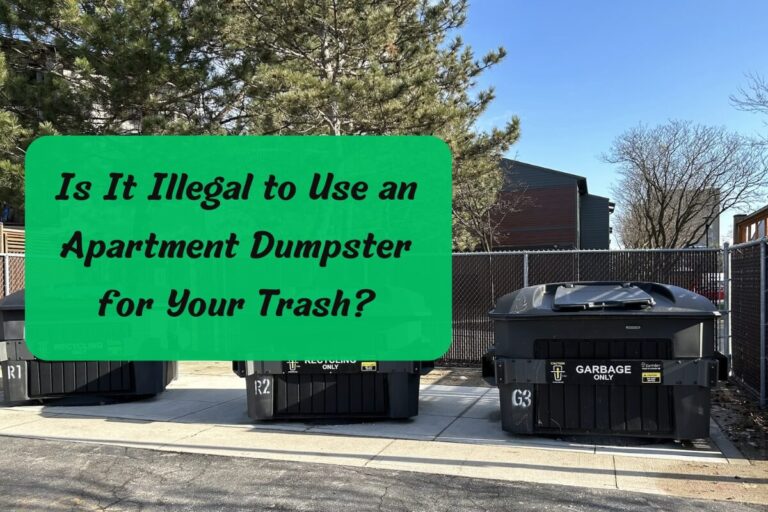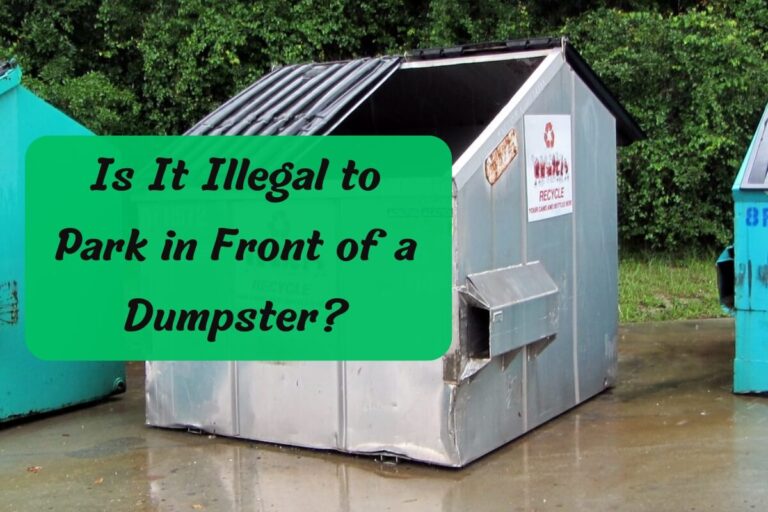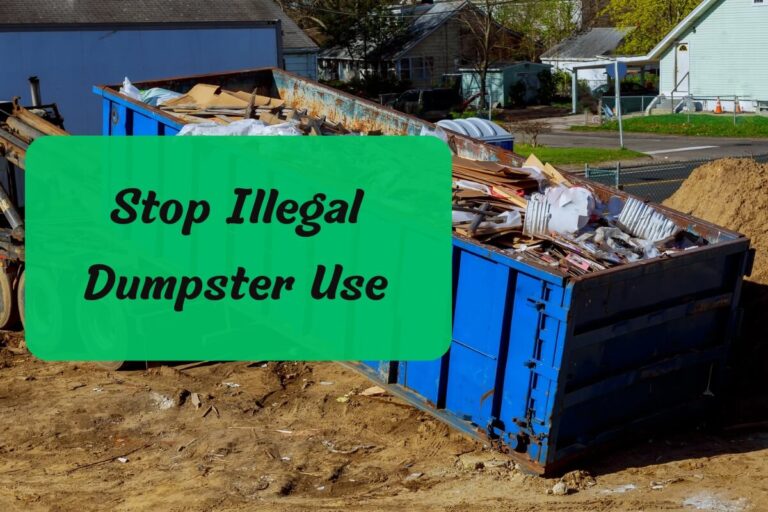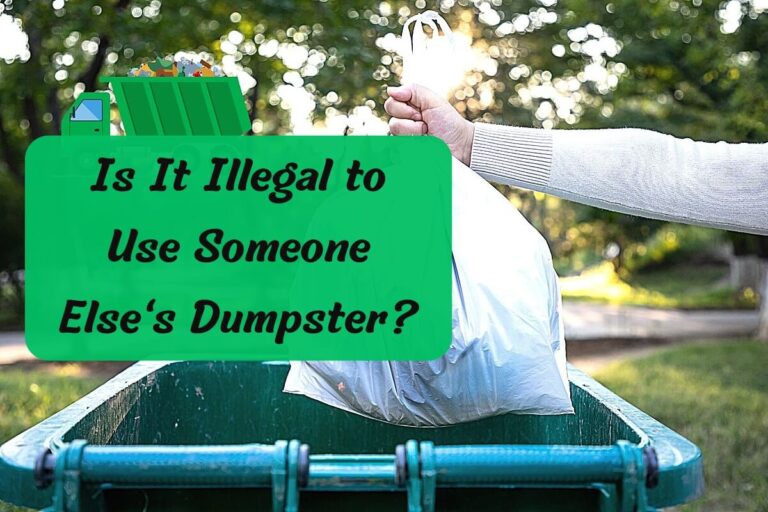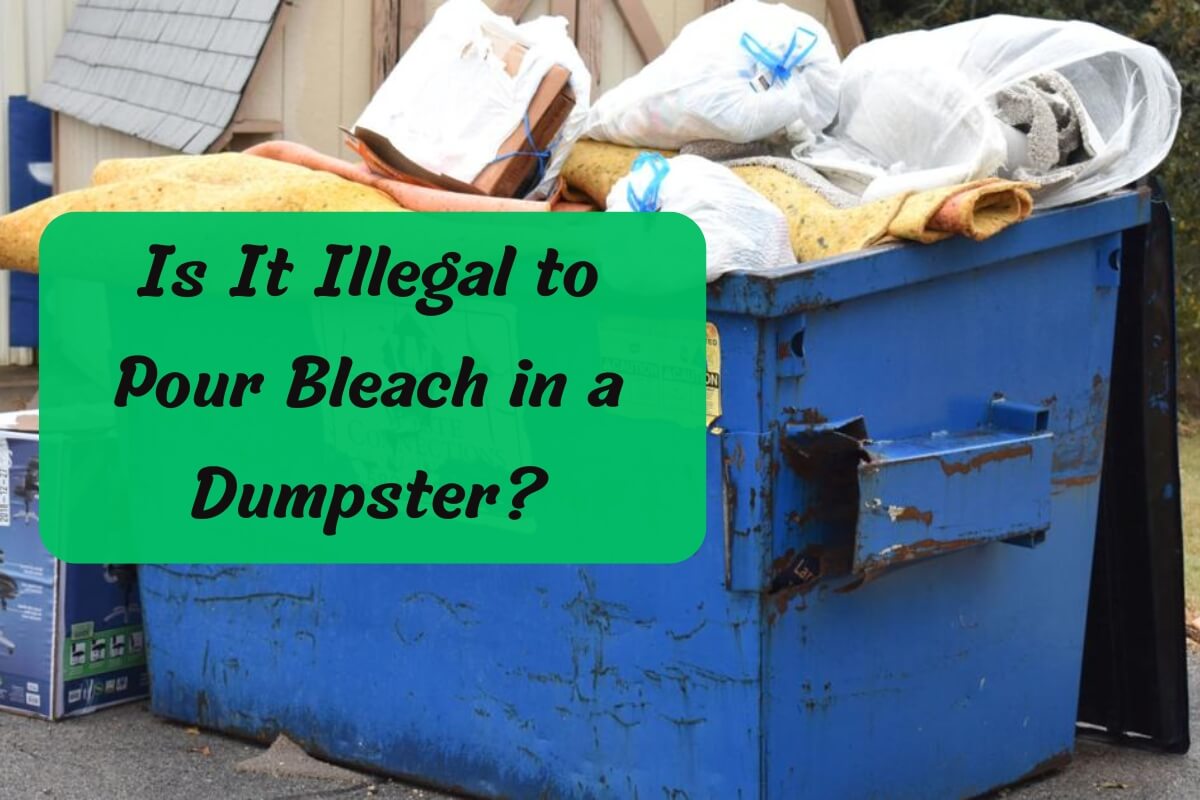
Pouring bleach into a dumpster is illegal and harmful to the environment and human health. Bleach is a hazardous material that requires proper disposal. When you pour it down the drain or in a dumpster, you risk facing fines and legal trouble.
This article will explain why pouring bleach in a dumpster is illegal, the risks involved, and how to dispose of it safely. You’ll also learn about eco-friendly alternatives to bleach for a clean and sustainable home.
Understanding the Legalities
Federal and state laws strictly regulate the disposal of hazardous materials, including bleach.
Under the Resource Conservation and Recovery Act (RCRA), bleach is classified as a characteristic hazardous waste due to its corrosive nature. This means that improper disposal of bleach can pose substantial risks to human health and the environment. Violating these hazardous waste disposal laws can result in severe penalties, including hefty fines and potential criminal charges in some cases.
Many states and local municipalities have their own regulations and guidelines for disposing of hazardous materials like bleach. It’s always a good idea to check with your local waste management authorities to understand the specific rules in your area.
Potential Risks and Consequences
Now that we’ve established the legal implications, let’s explore the potential risks and consequences of pouring bleach in dumpsters.
Environmental Impact
When bleach is improperly disposed of, it can seep into the soil and contaminate groundwater sources. This can have devastating effects on local ecosystems, harming plant and animal life. Bleach can also release toxic fumes into the air, contributing to air pollution and potentially causing respiratory issues for those in the vicinity.
A stream or river contaminated with bleach could wipe out aquatic life, disrupting the ecosystem and having far-reaching consequences.
Safety Hazards
Bleach is a corrosive substance that can react with other materials in the dumpster, potentially causing fires or explosions. This poses a significant safety risk for waste management workers, as well as anyone in the surrounding area.
Have you ever accidentally mixed bleach with other cleaning products? The fumes can be overwhelming and toxic. Now imagine that happening on a larger scale in a dumpster filled with various household and commercial waste materials. It’s a recipe for disaster.
Additionally, the fumes released from bleach can cause respiratory problems, skin irritation, and other health issues for those exposed to them.
Legal Consequences
As we mentioned earlier, improperly disposing of hazardous materials like bleach is illegal in most areas. Violators can face substantial fines, legal action, and even criminal charges in some cases.
Receiving a hefty fine or facing legal trouble for improperly disposing of bleach is not worth the risk. Proper disposal methods exist.
Proper Bleach Disposal Methods
Now that we’ve covered the legalities and potential risks, let’s discuss how to dispose of bleach properly.
Household Bleach Disposal
For small quantities of household bleach, the recommended method is to dilute it with water and pour it down the drain while running plenty of water to flush the system. This should only be done for small amounts, as larger quantities can overwhelm sewage treatment facilities.
Pouring a large bottle of bleach down the sink can damage pipes or create a hazardous situation in the sewage system. Proper dilution and disposal methods must be followed.
Commercial or Industrial Bleach Disposal
Businesses or industries that use larger quantities of bleach or other hazardous chemicals must follow stricter protocols. These may include contracting with a licensed hazardous waste disposal company or transporting the waste to a designated hazardous waste facility.
Failure to comply with these regulations can result in severe penalties. Imagine being hit with a massive fine or facing legal action simply because your business didn’t properly dispose of bleach or other hazardous materials. It’s not worth the risk to your business’s reputation and financial well-being.
Eco-Friendly Alternatives to Bleach
Given the potential risks and legal implications of improper bleach disposal, it’s worth considering safer and more environmentally friendly alternatives for cleaning and disinfecting purposes.
Natural Cleaning Products
Many household chores can be accomplished using natural cleaning products like vinegar, baking soda, and essential oils. These alternatives are typically non-toxic, biodegradable, and gentle on the environment while still being effective at cleaning and deodorizing.
Imagine being able to clean your home without worrying about the potential hazards of harsh chemicals. Natural cleaning products not only protect the environment but also create a safer living space for you and your family.
Environmentally-Friendly Disinfectants
For disinfecting purposes, there are several eco-friendly options available on the market. These products are designed to be less harmful to the environment while still effectively killing germs and bacteria.
Examples include hydrogen peroxide-based disinfectants, plant-based disinfectants, and products made from natural enzymes. Many of these alternatives are just as effective as traditional disinfectants but without the harsh chemicals and potential environmental impact.
By exploring these alternatives, you can reduce your reliance on bleach and other harsh chemicals, minimizing the risk of improper disposal and contributing to a cleaner, safer environment.
Conclusion
Pouring bleach in a dumpster is illegal in most areas due to its classification as a hazardous material. Not only does it violate environmental regulations, but it also poses significant risks to the environment, human health, and safety.
Proper disposal methods, such as diluting small amounts and pouring them down the drain or seeking professional hazardous waste disposal services for larger quantities, are crucial to avoid legal consequences and minimize environmental impact.
Remember, we all have a responsibility to protect our planet and the communities we live in. By making mindful choices and exploring eco-friendly alternatives, we can create a cleaner, healthier, and more sustainable future for ourselves and generations to come.
